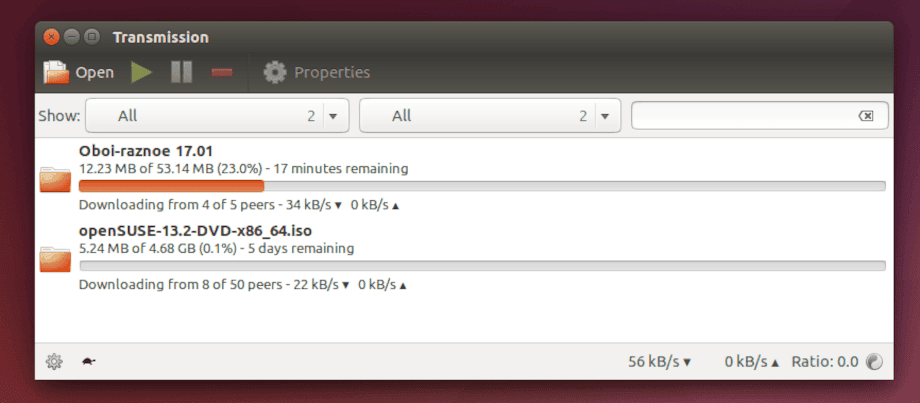Are you searching for the best Linux applications for your desktop computer or laptop to take you into 2021? Hence, in this article, we’ll present a list of most popular Linux apps that you must top 10have installed on your Linux operating system. The list fully contains free and open source applications that you can easily install on any Linux distribution.
1. Firefox
Firefox is the default web browser for a number of Linux distros such as Ubuntu and Linux Mint. The browser’s simple and fluid interface is one of its many attractions. Firefox supports a number of extensions to enhance your web experience, and you can customize the browser further via the Mozilla add-ons page, where it is possible to install a colorful theme.
Firefox provides some of the best features that one can find in web browsers, along with excellent support for syncing features, such as browsing history, bookmarks, etc.

2. Thunderbird
Thunderbird is an exceptional free email client that lets you manage as many email accounts as you like from one convenient locations. It’s very flexible and can be expanded via plugins that fill any holes in its feature set.
Thunderbird is among the most popular email applications. It is free, open-source, customizable, feature-rich, and above all, easy to install. Thunderbird is a client from the same development house as Firefox. It’s a cross-platform, more rapid, modern web email technology for using email services.
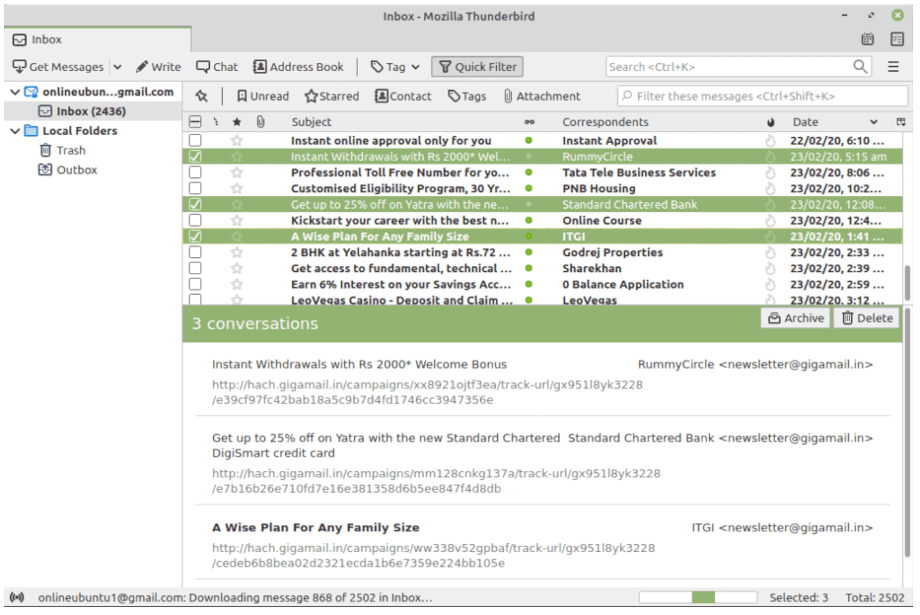
3. LibreOffice
Everyone needs a suite of office software for everyday tasks. Microsoft Office is perhaps the best-known option, but there are also lots of free alternatives that replicate almost all the features of Word, Excel, PowerPoint and company. LibreOffice is one such package, and it’s earned a reputation as one of the best free office suites around.
LibreOffice contains six component programs that provide everything you need from an office suite:
- Writer (word processing)
- Calc (spreadsheets)
- Impress (presentations)
- Draw (vector graphics)
- Math (mathematical formulae)
- Base (databases)
You can save and open many different formats, including Microsoft file types (including DOC, DOCX, PPT, PPTX, and many more), which is ideal if you’re collaborating with users of Microsoft Office, or if you’ve previously used Microsoft’s suite but have decided to try LibreOffice.
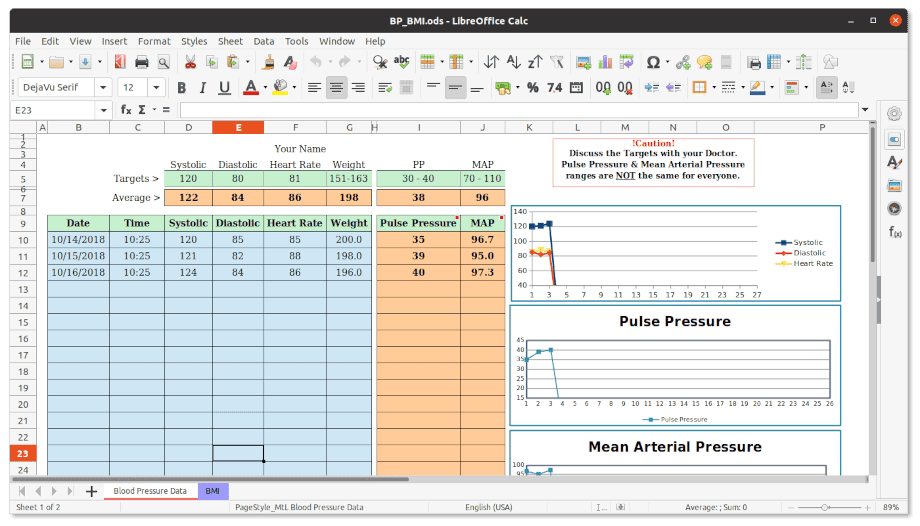
4. VLC Media Player
If you are finding some trouble for playing your favourite videos on media player due to some compatibility issues then it is good to try VLC for once. This open source and free to use software tool is capable enough to play almost all popular video file formats. In addition to, the rest all can be easily converted to supported ones using same interface.
VLC Media Player supports streaming, and can be extended almost infinitely with downloadable plugins. VLC has excellent tools for tweaking video and audio playback, it can play formats nobody’s mentioned for years, and it’s blazingly fast.

5. GIMP
GIMP is the best free photo editor, and comes with a huge array of professional-quality functions. It includes layers, highly customizable brushes, filters and automatic image-enhancement tools, and support for a huge number of plugins. It is a free alternative to Photoshop that more than holds its own.
GIMP extraordinary editing features allow you to retouch photos or create images from scratch. Includes cropping, automatic image optimization tools, color adjustment tools, customizable brushes and more. For experienced users there are other more advanced features like filters, Bezier curves, layer masks and an animation package.
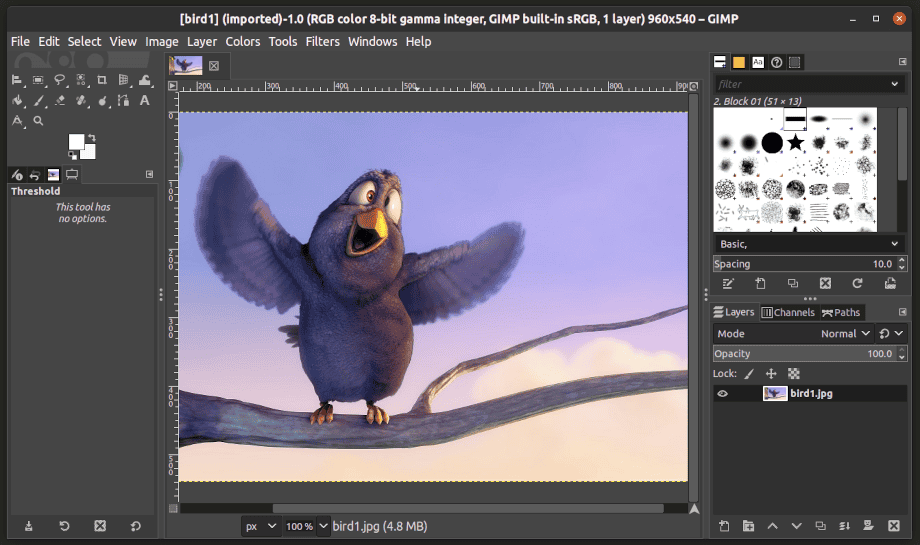
6. Visual Studio Code
Visual Studio Code is a free source-code editor made by Microsoft. Due to its features, it’s considered one of the best and famous open source code editors. Yes, it’s one of the many open source products from Microsoft. In the case of VS Code development, MS has shown a significant contribution to the developer.
Features include support for debugging, syntax highlighting, intelligent code completion, snippets, code refactoring, and embedded Git. Users can change the theme, keyboard shortcuts, preferences, and install extensions that add additional functionality.

7. Audacity
If you’re looking to start a podcast or record music, or if you just need a tool to assemble and convert some audio samples, it’s tough to go wrong with Audacity. The program lets you easily import, mix, and combine audio tracks (stereo, mono, or even multitracked recording) and render the output as one.
To get started with Audacity, either drag a sound you want to edit into the main window or click the record button to start recording from your computer’s built-in microphone or attached audio interface.
Audacity is a capable editor that gives you much of the same power you used to have to pay good money for with Sony’s Sound Forge or the Bias Peak. However, if you want to start a new podcast or trim a batch of 100 sound effects for an indie game, Audacity should be your first stop. If your needs are light enough, Audacity could well be your last.

8. VirtualBox
VirtualBox is a cross-platform virtualization application that helps you run multiple operating systems simultaneously on one machine, including Windows, Linux, Mac OS X, Oracle Solaris, as well as a number of guest operating systems. It is already a feature-rich solution but because it is supported by a dedicated community and backed by a powerhouse company, it receives frequent releases that continue to add features that are reviewed by Oracle to ensure professional quality.
It is the only professional solution that is freely available as open-source software under the terms of the GNU General Public License (GPL) version 2. If you can’t find a virtualization solution in the paid software market that can provide all of the functionality and features you want, VirtualBox may be the best option for you.
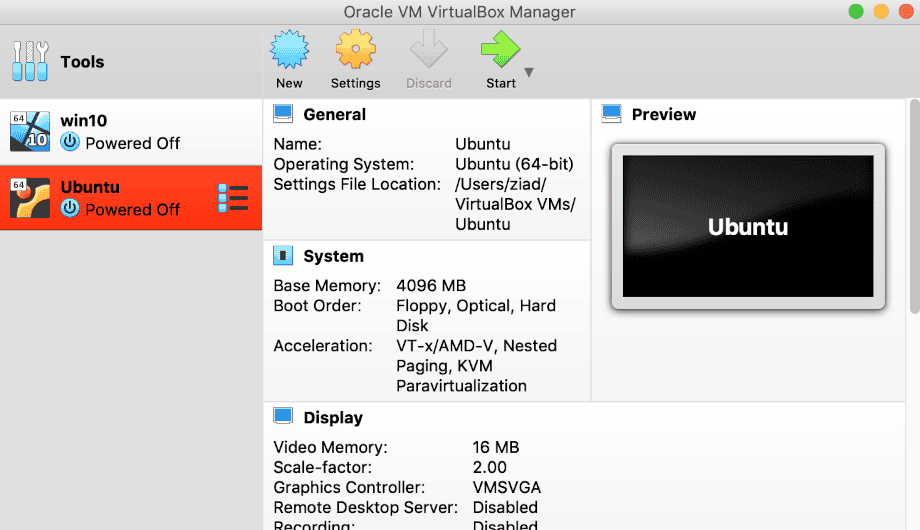
9. Shotcut
Shotcut is a free open source video editing software. It offers many standard video editing features, and after you spend a little time figuring it out, it’s not that hard to use. Shotcut offers one thing few other free programs do: a big library of both audio and video filters that are as powerful as they are easy to figure out. You can add many filters to one file, and this means you can effectively tweak every detail about how the image or sound is presented. Professional tools offer all of this, but this combination of power and ease of use is unusual in free software.
Shotcut main advantages are many different video formats support and the fact that it doesn’t require import, which means that it provides native timeline video editing. There are many output options in Shotcut, such as Apple ProRes, HDV, DVD, Flash, H.264, GIF animation, OGG Vorbis, WebM, and WMV. In addition, Shotcut provides export with the H.265 code. Due to this, your 4K videos will be more controllable and have better compression.
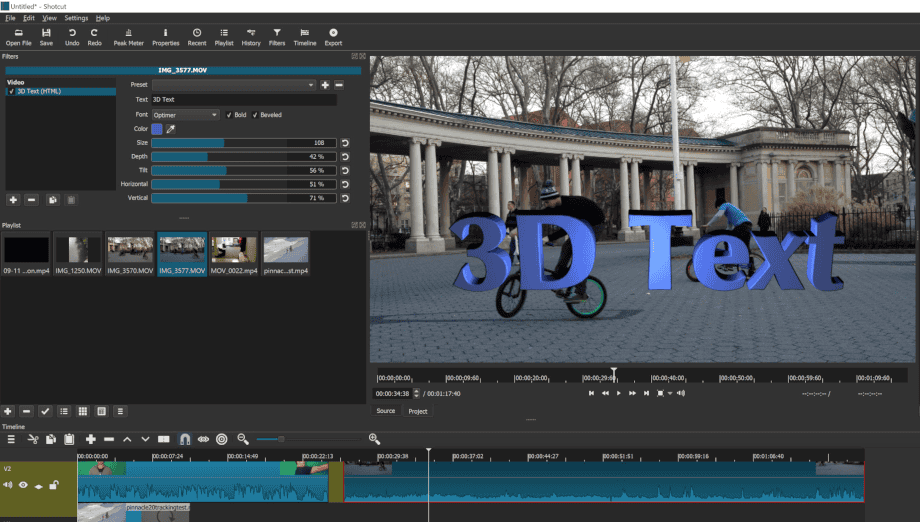
10. Transmission
Transmission is a BitTorrent client which features a variety of user interfaces on top of a cross-platform back-end. It is currently the default BitTorrent client for GNOME desktop environment.
Transmission has one of the sleekest web interfaces known to torrent clients. Though this is a feature of many, Transmission’s web interface could be a program of its own. It allows a configuration for remote access in an easy way, but you’ll need to adjust firewall rules accordingly. The web interface can do almost everything that the desktop application does.
The biggest benefit is that it uses very little system memory. It’s generally considered to consume the least of all major BitTorrent clients. Transmission is a good choice for those looking for a minimalist yet powerful torrent client.
